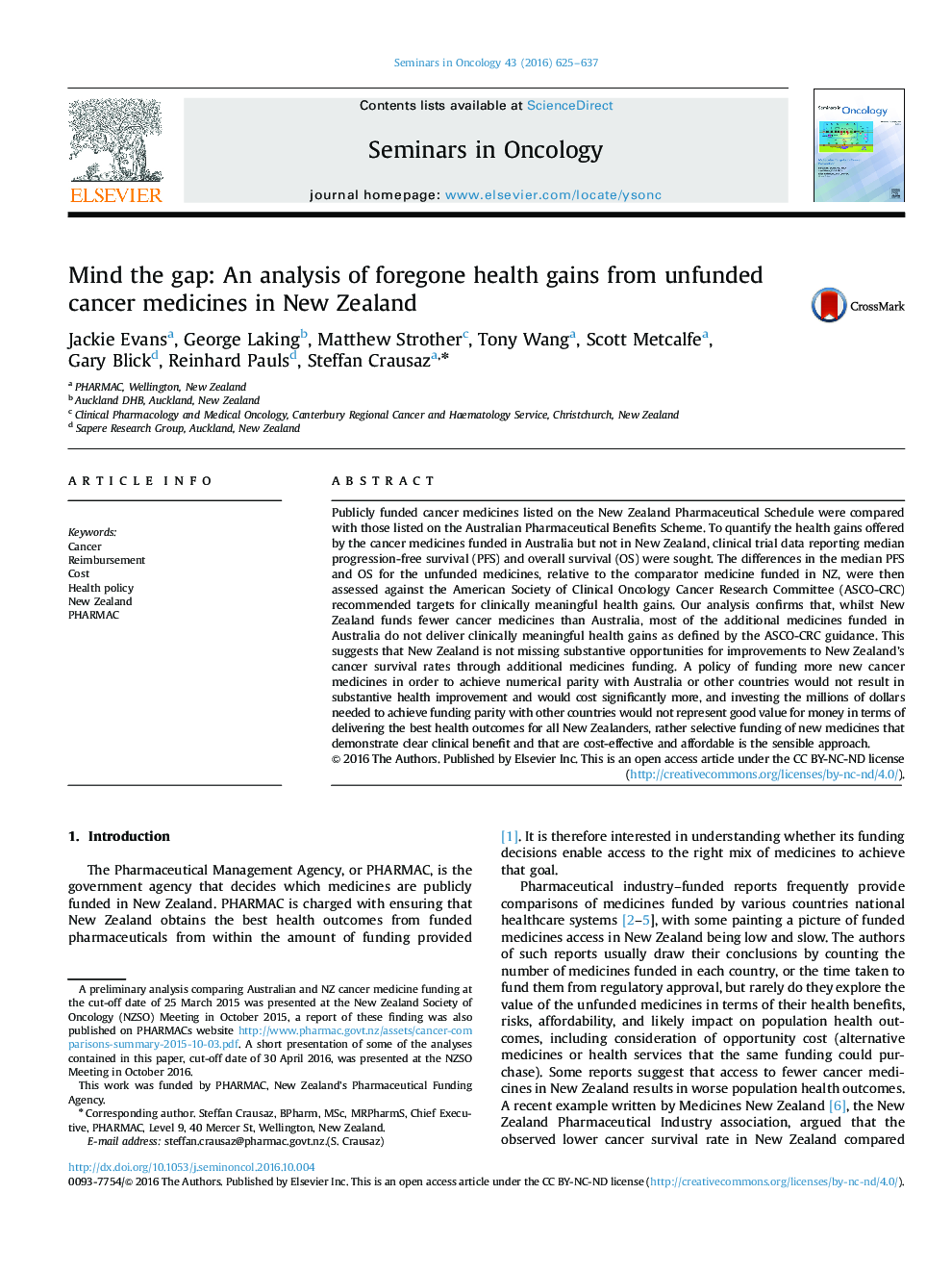| Article ID | Journal | Published Year | Pages | File Type |
|---|---|---|---|---|
| 5530270 | Seminars in Oncology | 2016 | 13 Pages |
Publicly funded cancer medicines listed on the New Zealand Pharmaceutical Schedule were compared with those listed on the Australian Pharmaceutical Benefits Scheme. To quantify the health gains offered by the cancer medicines funded in Australia but not in New Zealand, clinical trial data reporting median progression-free survival (PFS) and overall survival (OS) were sought. The differences in the median PFS and OS for the unfunded medicines, relative to the comparator medicine funded in NZ, were then assessed against the American Society of Clinical Oncology Cancer Research Committee (ASCO-CRC) recommended targets for clinically meaningful health gains. Our analysis confirms that, whilst New Zealand funds fewer cancer medicines than Australia, most of the additional medicines funded in Australia do not deliver clinically meaningful health gains as defined by the ASCO-CRC guidance. This suggests that New Zealand is not missing substantive opportunities for improvements to New Zealand's cancer survival rates through additional medicines funding. A policy of funding more new cancer medicines in order to achieve numerical parity with Australia or other countries would not result in substantive health improvement and would cost significantly more, and investing the millions of dollars needed to achieve funding parity with other countries would not represent good value for money in terms of delivering the best health outcomes for all New Zealanders, rather selective funding of new medicines that demonstrate clear clinical benefit and that are cost-effective and affordable is the sensible approach.
